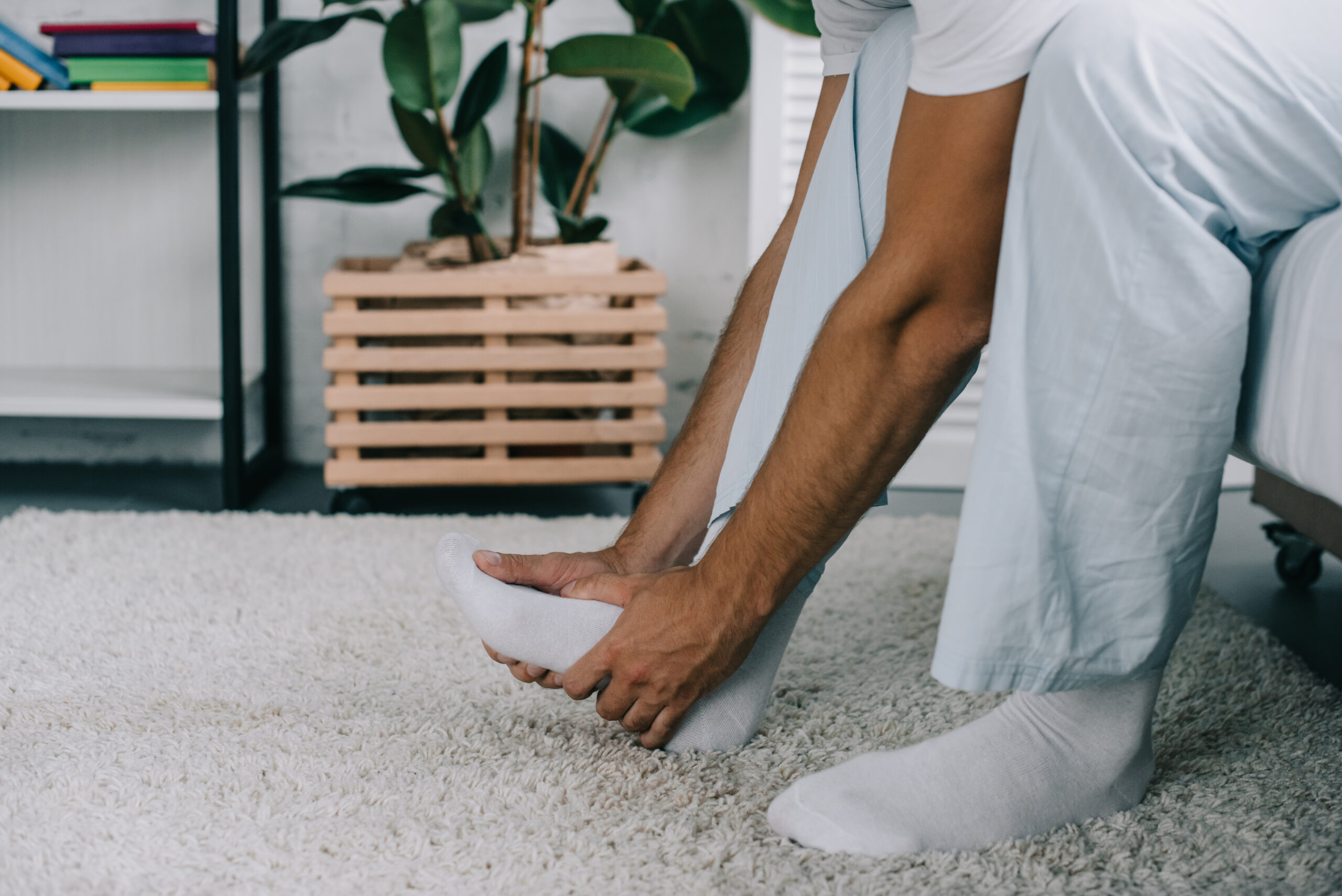Here are 8 reasons you may have nighttime foot pain, even if your feet don’t hurt during the day.
Why do your feet hurt at night when you’re not even on them?
There can be many reasons you experience pain and discomfort in your feet at night, including:
- Your shoes. If you wear shoes that don’t fit well or that don’t have much support, it can cause painful foot conditions, such as blisters, bunions, plantar fasciitis or other foot-related issues.
- Your weight. If you are overweight or obese, it puts extra pressure on your feet and ankles, straining your muscles, ligaments and joints. This can cause chronic pain or injury.
- Your lifestyle. If you are on your feet a lot, whether for work or play, it can lead to overuse injuries such as heel pain, shin splints, weak ankles or stress fractures.
- Plantar fasciitis. This common foot condition affects the band of tissue running along the bottom edge of your foot. When it becomes inflamed, it can be painful. Standing or walking for long periods of time and not wearing supportive footwear aggravates the condition.
- Arthritis. Inflammation in your joints may be felt more at night, especially when you lie down.
- Peripheral neuropathy. The nerves in your extremities may be damaged, especially in your legs, which causes pain, numbness and difficulty walking. Symptoms of this disorder are usually worse at night.
- Peripheral artery disease. This is a condition in which the blood vessels in your legs are blocked or narrowed, reducing blood flow to your feet and legs. This may cause pain, numbness or difficulty walking.
- Pregnancy. Changes to your body during pregnancy may cause your feet to swell and ache and may also lead to leg cramps at night.
What can you do to ease nighttime foot pain?
The first thing you should do if your feet often hurt at night, or at any time of day, is to see a doctor for an evaluation. Figuring out what is causing the discomfort can help you determine the best way to alleviate pain, numbness or tingling. Other remedies that may help include:
- Stretching and strengthening exercises
- Practicing the RICE method (rest, ice, compression and elevation)
- Taking anti-inflammatory medication
- Wearing a splint
- Wearing compression socks
- Going for physical therapy
- Having surgery if needed
Other tips for helping to prevent foot pain include:
- Wearing well-fitting supportive footwear
- Regularly performing stretching and strengthening exercises for your feet and ankles
- Maintaining a healthy weight
- Staying well hydrated
- Managing chronic health conditions, such as cardiovascular disease and diabetes
“Night time lower leg and foot pain effects a large number of adults, and most can get relief with simple changes. My first recommendation is to make sure your shoes fit well and are the correct shoes for your feet. There are several great footwear stores around town that provide guidance on this. Other common issues include excess fluid in the feet and ankles, electrolyte abnormalities, and soft tissues problems like plantar fasciitis. These can be easily diagnosed and treated by primary care physicians. It’s easy to overlook, but our whole body rests upon our two feet, so take care of them!”
Copyright 2023 © Baldwin Publishing, Inc. Health eCooks™ is a designated trademark of Baldwin Publishing, Inc. Cook eKitchen™ is a designated trademark of Baldwin Publishing, Inc. Any duplication or distribution of the information contained herein without the express approval of Baldwin Publishing, Inc. is strictly prohibited.
Date Last Reviewed: June 16, 2023
Editorial Review: Andrea Cohen, Editorial Director, Baldwin Publishing, Inc. Contact Editor
Medical Review: Perry Pitkow, MD
Learn more about Baldwin Publishing Inc. editorial policy, privacy policy, ADA compliance and sponsorship policy.
No information provided by Baldwin Publishing, Inc. in any article is a substitute for medical advice or treatment for any medical condition. Baldwin Publishing, Inc. strongly suggests that you use this information in consultation with your doctor or other health professional. Use or viewing of any Baldwin Publishing, Inc. article signifies your understanding and agreement to the disclaimer and acceptance of these terms of use.
